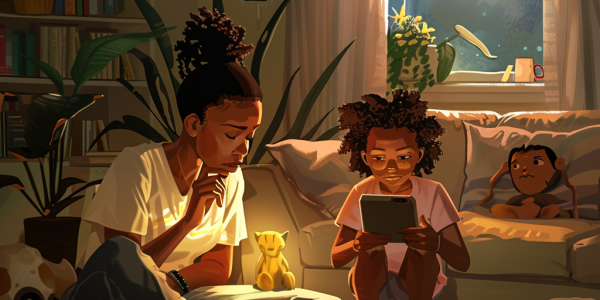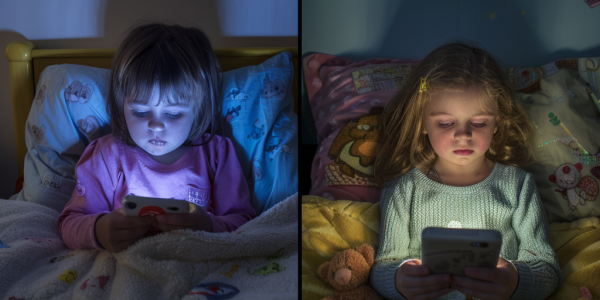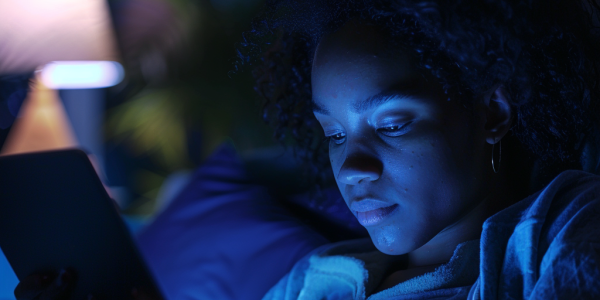CDC Report Reveals Alarming Screen Time Trends Among Children
A new CDC report reveals alarming levels of screen time among children, raising concerns about health impacts such as obesity and impaired social skills. Experts urge parents to monitor device usage and promote physical activity to combat these trends.
Alarming Study Reveals Low Physical Activity Levels in Young Children
A new study reveals alarming trends in children’s health, showing only 14% of children aged three to four meet WHO guidelines for physical activity, sleep, and screen time. Conducted by researchers from the University of Wollongong and the University of Stirling, the study analyzed data from over 7,000 children across 33 countries. It highlights the urgent need for parents, educators, and policymakers to promote healthier lifestyles and address disparities in children’s activity levels globally.
The Impact of Technology on Children’s Sleep Patterns
In today’s digital age, technology significantly impacts children’s sleep patterns, raising concerns for parents. Excessive screen time can disrupt sleep quality, leading to irritability and health issues. Experts recommend limiting device usage before bedtime and fostering a calming sleep environment to ensure children receive the restorative sleep essential for their growth and development.
The Impact of Blue Light on Your Skin
Learn how blue light from screens can impact your skin, causing issues like premature aging and hyperpigmentation. Find out how prolonged exposure to blue light can lead to skin discoloration and loss of skin elasticity.
Combating Smartphone Addiction in a Tech-Dominated World
Combatting smartphone addiction in a technology-driven world is a growing concern. One individual shares their personal struggle with dopamine hits, impulse buying, and excessive screen time. Despite being a writer and advocate for mindfulness, they found themselves trapped in a cycle of addiction. Seeking solace in moments of disconnect, they aim to find a balance between technology and mindful living to overcome their addiction and embrace a more intentional way of life.
Tech Billionaire Peter Thiel Limits Children’s Screen Time to 1.5 Hours Per Week
Tech billionaire Peter Thiel reveals he limits his children to just 1.5 hours of screen time per week, sparking a broader discussion on regulating social media use among kids. Thiel’s approach mirrors that of other tech executives like Snapchat CEO Evan Spiegel and Google CEO Sundar Pichai, highlighting a growing awareness of the potential impacts of excessive digital exposure on young individuals.
Rising Cases of Nearsightedness Spark Concern Among Experts
Recent studies show a significant increase in nearsightedness among Americans, with half of the world’s population predicted to be affected by myopia by mid-century. Excessive screen time is linked to the rise in myopia cases, emphasizing the importance of limiting screen exposure and encouraging outdoor activities. Dr. Ritter recommends following guidelines from the American Academy of Pediatrics and implementing the 20-20-20 rule to alleviate eye strain and slow the progression of myopia.
Excessive Screen Time and Children’s Development
Recent research suggests that excessive screen time can have detrimental effects on children’s social and emotional development. Prolonged screen exposure may lead to social deficits and emotional challenges in children, with some effects resembling symptoms of autism. This phenomenon has been termed ‘virtual autism’ by some experts, although it is not officially recognized as a clinical diagnosis. Studies have observed adverse effects on language, cognition, and social skills in children with excessive screen time, emphasizing the need for further research and strategies to mitigate the impact.
Managing Children’s Screen Time and Protecting Their Eyes in the Digital Age
Managing children’s screen time and protecting their eyes is a common concern for parents in today’s digital age. Dr. Pradeep Sharma, a paediatric ophthalmologist, explains that excessive screen time can contribute to the development of myopia, a prevalent eye condition among the younger population. Promoting healthy screen habits and incorporating regular breaks, such as the 20:20:20 guideline, is essential. Balancing screen time with other offline activities is key to preventing excessive screen exposure and protecting children’s eyesight.
HOYA emphasizes the importance of discussing myopia with optometrists, parents, and educators as students return to classrooms
As students across Australia return to classrooms, lens manufacturer HOYA is emphasizing the importance of discussing myopia with optometrists, parents, and educators. The company is urging the prioritization of children’s eye health, stating that myopia affects both learning and long-term…










